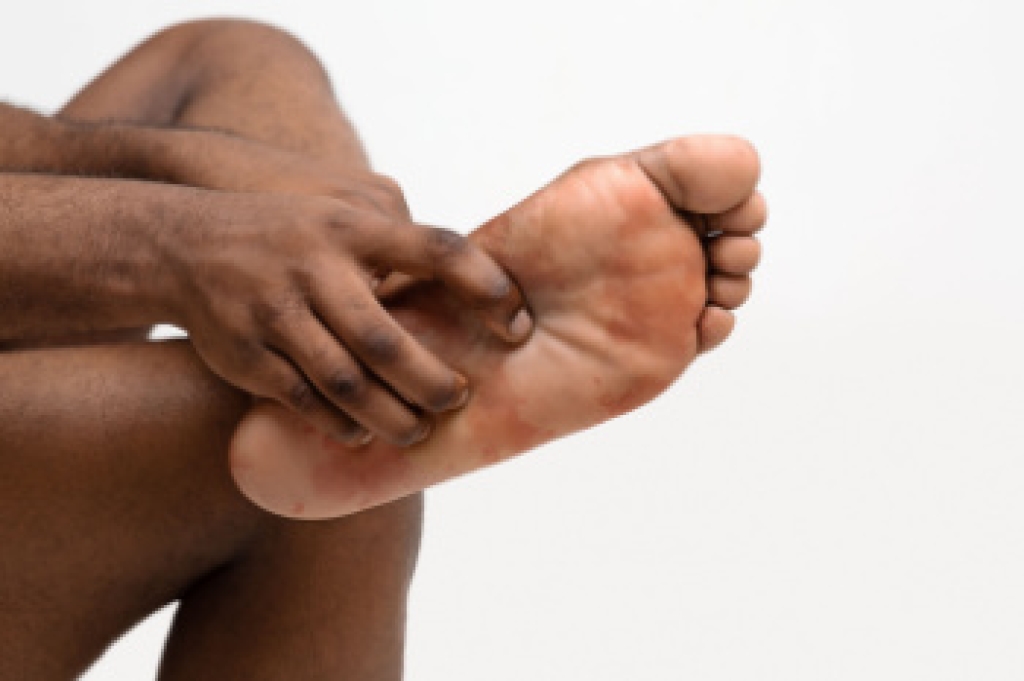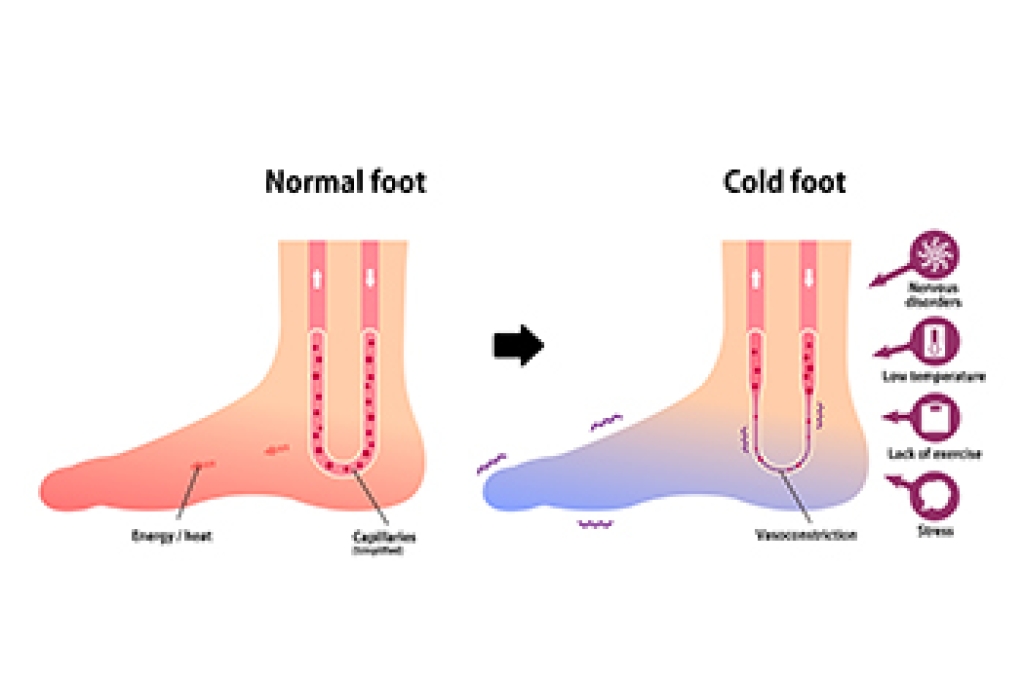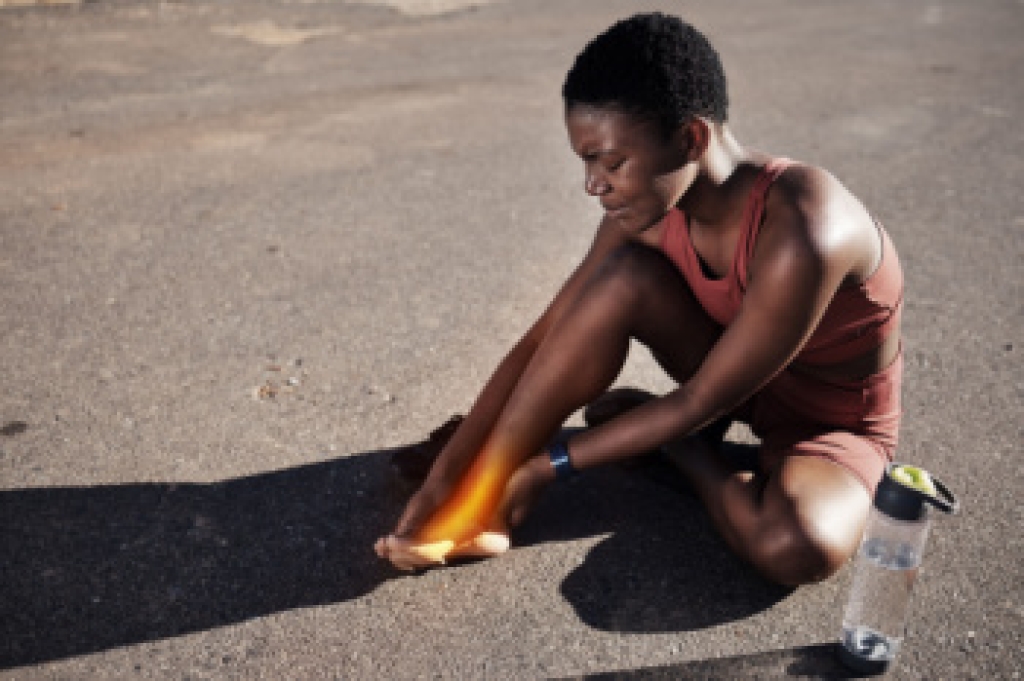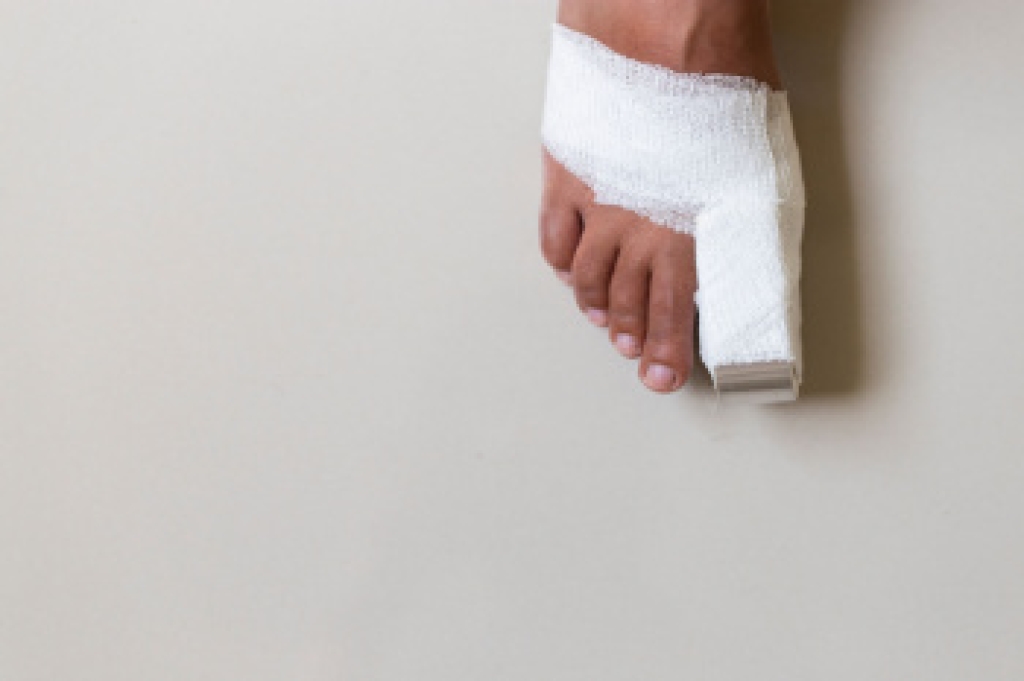
Plantar fasciitis, one of the most common causes of heel pain, often develops gradually. It occurs when the plantar fascia, a thick band of tissue along the bottom of the foot, becomes irritated or strained. Many people notice sharp pain near the heel, especially with the first steps in the morning or after sitting. The foot may look normal or slightly swollen, but it can feel tight after long periods of standing. Causes include overuse, unsupportive footwear, sudden increases in activity, or foot structure issues, such as high arches. A podiatrist can begin with a detailed exam and imaging to confirm the diagnosis. Treatment includes custom orthotics, shoe guidance, anti-inflammatory care, and targeted exercises to improve strength and flexibility. Early care can reduce chronic pain, restore mobility, and help prevent long-term foot problems. If you have plantar fasciitis, it is suggested that you make an appointment with a podiatrist.
Plantar fasciitis can be very painful and inconvenient. If you are experiencing heel pain or symptoms of plantar fasciitis, contact David Lambarski, DPM from Northeast Foot Care. Our doctor can provide the care you need to keep you pain-free and on your feet.
What Is Plantar Fasciitis?
Plantar fasciitis is the inflammation of the thick band of tissue that runs along the bottom of your foot, known as the plantar fascia, and causes mild to severe heel pain.
What Causes Plantar Fasciitis?
- Excessive running
- Non-supportive shoes
- Overpronation
- Repeated stretching and tearing of the plantar fascia
How Can It Be Treated?
- Conservative measures – anti-inflammatories, ice packs, stretching exercises, physical therapy, orthotic devices
- Shockwave therapy – sound waves are sent to the affected area to facilitate healing and are usually used for chronic cases of plantar fasciitis
- Surgery – usually only used as a last resort when all else fails. The plantar fascia can be surgically detached from the heel
While very treatable, plantar fasciitis is definitely not something that should be ignored. Especially in severe cases, speaking to your doctor right away is highly recommended to avoid complications and severe heel pain. Your podiatrist can work with you to provide the appropriate treatment options tailored to your condition.
If you have any questions, please feel free to contact our offices located in Amsterdam and Clifton Park, NY . We offer the newest diagnostic and treatment technologies for all your foot care needs.




